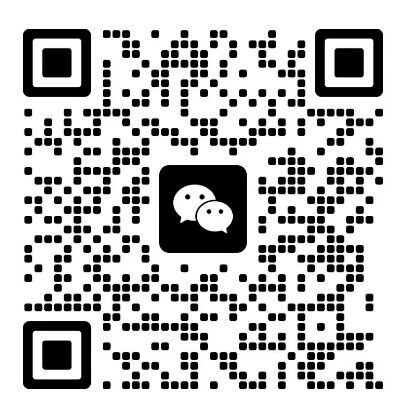Now it’s obviously that we are not only afraid of EFL writing but also don’t know how to write and how to apply what we have obtained from the reading materials to improve our EFL writing ability while we do a lot of English reading. Thus, we usually perform very poor in EFL writing. In a word, the situation of English writing in senior high schools is not so pleasant and satisfactory. However, nowadays, more and more emphasis has been laid on our productive activities. According to the New English Curriculum Standards, senior high schools students are supposed to be able to write a short English composition about 100 words in twenty five minutes to express their ideas clearly without making serious grammatical mistakes. Therefore, an effective approach is urgently required to change our unsatisfactory performance in EFL writing and improve our EFL writing ability.
3 The nature of reading and writing
To illustrate the effectiveness of reading-to-writing approach, we should firstly make clear about what reading is and what writing is. This section attempts to illustrate the nature of reading and writing.
3.1 The nature of reading
We receive a lot of information in our daily life and study; reading is the most usual and effective way to get it. We read all kinds of reading materials, for instance, newspapers, books, journals or magazines, etc. to get information. But we may never think of the nature of reading. It is necessary for us to make clear about the nature of reading, because “if the students fail to understand the nature of reading, they will adopt inappropriate and ineffective reading strategies (王蔷,2000: 111)”.
According to Longman Dictionary of Contemporary English (The fourth edition), the term “reading” can mean: “the activity or skill of understanding written words”, “books and other things that you can read” or “your way of understanding a particular statement, situation, event, etc.” (Randolph Quirk, 2003:1363).
While reading, we not only process the information and store the information in our “database”, but also interpret the reading materials based on our prior knowledge and form our opinions about the reading materials. In reading, we attempt to reconstruct what the writer means as well as to use our own knowledge and experiences to sense and to understand what the reading materials present.
From the above, it’s clear that reading is a process of getting and internalizing information as well as “a cognitive task of interpreting the visual information, relating the received information with the reader’s own general knowledge, and reconstructing the meaning that the writer had meant to convey (王蔷,2000: 115)”.
3. 2 The nature of writing
“On a day to day basis, we write many things, we write for various reasons, and we write in various ways (王蔷,2000: 136),” but few of us have ever thought of what writing really is. According to Oxford Advanced Learner’s English-Chinese Dictionary (Extended fourth edition), the term “writing” can mean: “activity or occupation of writing (esp. books)”, “written or printed words”, “style of written material” and “way in which a person forms letters when writing; handwriting” ( AS Hornby, 2002:1763).
In fact, different people have different opinions about writing. Some regard writing as a matter of putting words in written form; some think that writing is the occupation of creating a text for publication; while some others believe that writing is printed letters for communication; still others conclude that writing is letters or symbols written or imprinted on a surface to represent the sounds or words of a language, etc.. Xiao Fushou (肖福寿,2007: 41) offers us a tentative working definition of writing:
Writing is the art of putting words together to form sentences and/or paragraphs in an active, creative, and recursive process of communication in which the writer uses a conventional graphic system to convey a context-based message to a reader in a grammatical and rhetorical manner.
This is a nice and comparatively comprehensive definition of writing. From the definition we can see that: first, the purpose of writing is for communication; second, writing is an art of putting words together; third, writing is an active and creative activity; fourth, the writing is written for readers; fifth, the writing must be grammatically correct and comprehensible to the readers.
As mention above, we can conclude that the nature of writing is that writing is a piece of printed words created by a writer to the readers for effective communication.
4 The relationship between reading and writing
Listening, speaking, reading and writing are closely related and interacted language skills. Judith Oster (1984: ⅸ) puts forward that good reading is an important step towards good writing. Here he has implied the strong relationship between reading and writing. Knowing the relationship between reading and writing, we will easily grasp reading-to-writing approach.
4.1 The difference between reading and writing
Reading and writing are different in nature. We often get an idea that reading and writing are two different language skills because reading is a receptive activity while writing is a productive activity. Chen Liping (陈立平,2001) also thinks that reading and writing are two comparatively independent skills. While reading, we only focus on understanding the printed words written by writers. On the contrary, we must put our ideas into printed words in writing. Reading is actually a process of input, from which the readers obtain and internalize language knowledge. Writing is a process of output, in which the writers present their ideas, thought, and understanding by the language knowledge that they had learned or acquired. In summary, reading is receptive activity- a process of input while writing is productive activity- a process of output.
4.2 The mutual promotion and coexistence of reading and writing
Writing and reading are closely related activities. Xie Weina (谢薇娜,1994) concludes: “writing is an act that imitates reading act because writers imitate the process readers do in writing; reading imitates writing act because readers have to figure out the intention of a writer in reading”. From her conclusion, we can see that reading and writing are strongly related.
As a matter of fact, the close relationship between reading and writing and the positive effect of reading to writing have long been recognized. It can be testified by Chinese proverbs “he who reads tremendously owns a gifted pen” and “one will become a poet if he/she has read three hundred Tang poems thoroughly”. Reading has been regarded as an effective way to improve language learning for a long time. Cai Mingde (蔡明得,2003) says that reading is the basis and presupposition of writing. It’s hard or even impossible for us to produce a piece of idiomatic, unity, concise, coherent and content-rich English composition unless we have read a lot of English materials and internalized sound English language knowledge, writing skills, composition structures, etc.. In fact, reading serves as a period of collection and accumulation. In this period, the writers must first read a great deal of English materials and collect relative information (for instance, the usage of words, the ways of arranging sentences, the sentence patterns, the development of paragraphs, the composition structures, etc.) purposefully for EFL writing. Reading is actually a process of input. Xiong Jie (熊杰,2005) points out: “without enough input, good output is difficult or impossible”. In sum, writing—output is hard or even impossible without reading—input; and on the other hand, there would be no reading materials without writing.
Through sufficient writing practice, we can improve our reading speed and reading comprehension ability effectively. There is no doubt that a great deal of input (reading) is indispensable for the students in senior high schools. But if we just pay much attention to acquire English language knowledge but do not use it in reality, what we get may be just a set of unconnected language forms. In fact, we are highly praised to do writing and apply what we have obtained from the reading materials. Cai Mingde (蔡明德,2003) concludes that the promotion of writing to reading reflects on the following two aspects: first, writing can effectively promote the readers’ internalization of the language skills and thus improve the quality and effects of reading; second, writing can directly reflect the effects of reading and maximize the results of reading activities. Through persistent writing practice, we can develop our awareness of the organization and structure the reading materials, the development of the text, the sentence structures and patterns and the meaning of specific words. That is to say, writing makes reading more effective and efficient.
All in all, reading and writing promote each other mutually and they are coexistent activities. To improve EFL writing ability, we must first develop our reading ability and do more English writing practice. Most importantly, we must persist in combining reading with writing in our EFL writing practice.
5 The necessity and feasibility of reading-to-writing approach
Xiong Jie (熊杰,2005) points out: “without being exposed to extensive and effective reading, it would be difficult and even impossible for one to learn to write.” Luckily, we actually read a l
TEL:蒋老师17773102705
扫一扫下方二维码关注湖南自考生网微信公众号、客服咨询号,即时获取湖南自考、成考、网教最新考试资讯。

关注公众号免费拿资料

微信扫一扫咨询

微信扫一扫咨询

1、鉴于各方面资讯时常调整与变化,本网所提供的信息仅供参考,实际以考试院通知文件为准。
2、本网部分内容来源于网络,如有内容、版权等问题请与本网联系,我们将会及时处理。联系方式 :QQ(393848300)
3、如转载湖南自考生网声明为“原创”的内容,请注明出处及网址链接,违者必究!